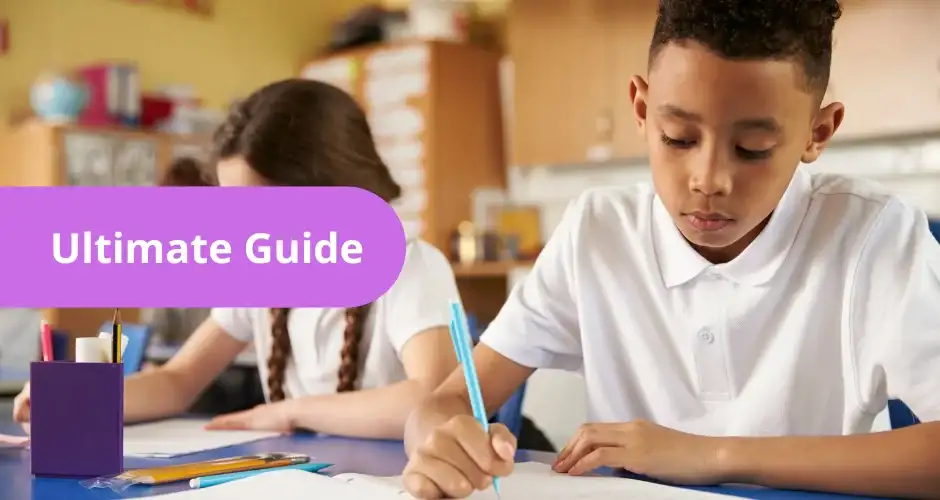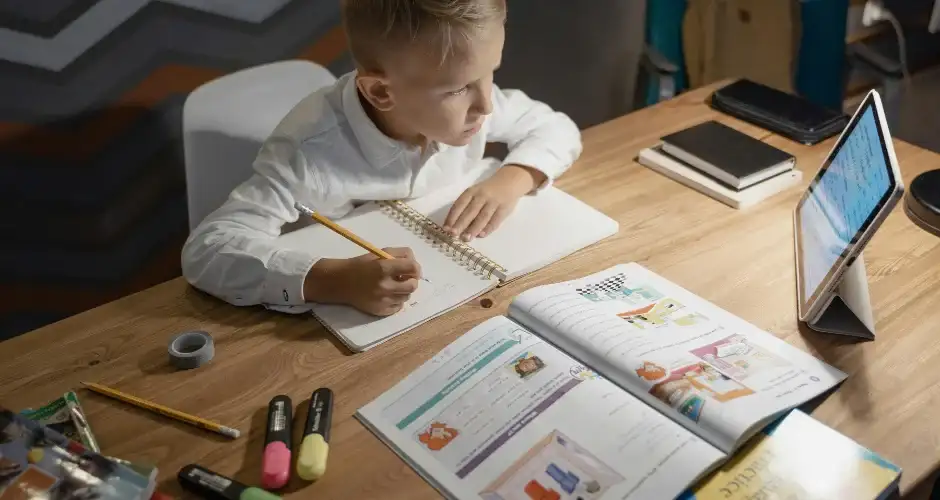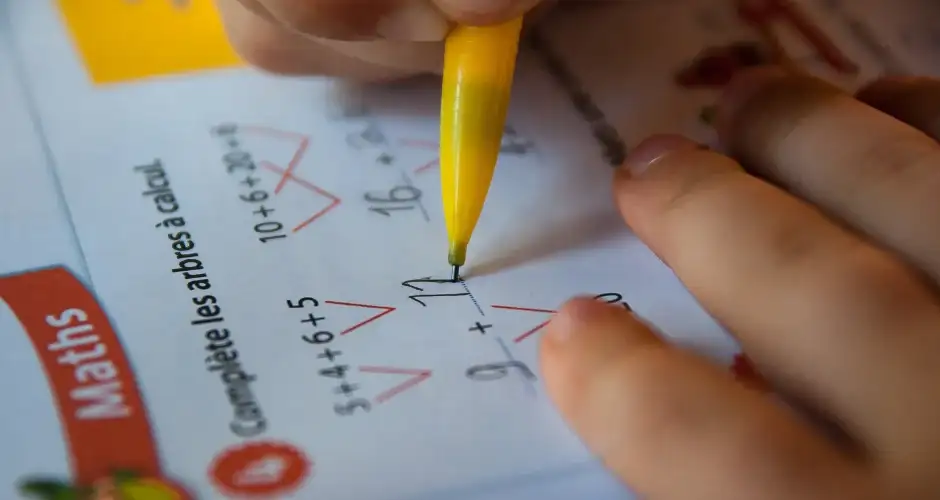GUEST POST
KS2 SATs Revision: A Parent’s Guide to Supporting Your Child

As a Year 6 teacher with many years of experience guiding children through their SATs, I know firsthand how stressful this time can be for both children and parents. Over the years, parents have reached out to me, feeling overwhelmed and unsure how best to help their child through the revision process.
The pressure can mount, and it’s easy for both kids and parents to feel a sense of panic. But with the right support and a calm approach, SATs don’t have to be the cause of all that stress. In this guide, I’ll share practical tips to help you support your child and ensure they go into their SATs feeling confident and ready for the challenge.
What Are the KS2 SATs?
SATs (Standard Assessment Tests) are national assessments taken by Year 6 pupils in May. They’re used to measure progress at the end of Key Stage 2 and provide secondary schools with an idea of a child’s academic strengths.
Children are tested in three main areas:
- English Reading
- English Grammar, Punctuation and Spelling (SPaG)
- Mathematics
While schools use SATs to track attainment, it’s important to remember that SATs don’t define your child’s worth, intelligence or future success. They’re just one piece of the bigger puzzle.
When Do SATs Take Place?
In 2025, SATs week started on Monday 12th May. Here’s the typical schedule:
- Monday: SPaG (Grammar, Punctuation and Spelling – two papers)
- Tuesday: English Reading
- Wednesday: Maths Paper 1 (Arithmetic) and Paper 2 (Reasoning)
- Thursday: Maths Paper 3 (Reasoning)
Writing is assessed by teachers over time, so there’s no formal writing test during SATs week.
If you are curious as to what sort of content comes up in each exam, check out this blog on what to expect in the Year 6 SATs exams.
How Can I Help My Child Revise at Home?
Many parents want to support their child but aren’t sure where to start. Here are some tried-and-tested ideas to help you make a real difference without causing stress.

1. Focus on Key Areas
You don’t need to cover the entire curriculum in one go. Prioritise:
- Times tables
- Mental maths (adding, subtracting, multiplying, dividing)
- Reading comprehension skills
- Grammar rules and punctuation
These are the areas that come up repeatedly in SATs—and improving in them builds overall confidence.
2. Build a Flexible Routine
Short, regular revision is more effective than last-minute cramming. Aim for 15–30 minutes a day, a few times a week.
Try creating a weekly revision plan with your child’s input. Mixing subjects and using different styles of revision (games, videos, worksheets) helps keep things fresh.
3. Use Free, High-Quality Resources
Some fantastic (and free) websites include:
- BBC Bitesize – friendly, digestible lessons across all SATs subjects
- Third Space Learning – access to resources and downloadable packs
- Top Marks – games for SPaG, maths and more
- Classroom Secrets Kids – interactive games for KS2
Check what your child is using at school—some schools have logins for platforms like Times Tables Rock Stars or Spelling Shed.
4. Make Learning Fun
You can revise without turning your home into a classroom. Try:
- Maths board games (like Sum Swamp or playing multiplication bingo)
- Spelling scavenger hunts
- Reading together and discussing stories
- Creating grammar challenges (e.g., "find five adjectives in the kitchen")
Fun and repetition go a long way!
Subject-Specific Tips
📘 Reading
- Read together daily—books, comics, leaflets, anything!
- Ask questions like: “Why do you think the character did that?” or “What does this word mean?”
- Practice explaining answers using evidence from the text
✏️ SPaG
- Practise commonly misspelt words (Year 5/6 list)
- Use grammar games or printable quizzes
- Focus on sentence types, punctuation and verb tenses
➗ Maths
- Prioritise mental arithmetic—quick recall of facts is crucial
- Review past arithmetic papers to spot patterns
- Practise real-life maths: shopping, measuring, cooking

Supporting Different Learning Styles
Every child learns differently. Here’s how to tailor revision to suit your child’s learning style:
- Visual learners love diagrams, colour-coded notes, mind maps and flashcards.
- Auditory learners benefit from talking through problems, songs and mnemonic devices.
- Kinaesthetic learners like hands-on activities, games, and moving around while revising.
Mixing approaches keeps revision engaging and caters to your child’s strengths.
Managing SATs Anxiety
It’s completely normal for children to feel nervous. Here’s how you can help them feel more in control:
- Keep SATs talk low-key—focus on effort, not outcome
- Ensure your child is sleeping well and eating balanced meals
- Encourage regular breaks, fresh air, and screen-free downtime
- Praise their hard work, even if they get things wrong
- Remind them SATs are just one small part of their education
Sometimes, what children need most is reassurance that they’re not expected to be perfect.
Could a Tutor Help Your Child Prepare for SATs?
If your child is struggling with a particular concept—or just doesn’t seem to be making the progress you’d expect—a 1:1 online tutor can make all the difference.
Having someone work closely with your child means tricky topics like fractions, punctuation or word problems can be broken down calmly and patiently, at their own pace and in a way that makes sense to them.
Tutoring isn’t just about improving test scores—it’s about building confidence, developing good learning habits, and helping children realise what they’re truly capable of. Check out this blog on how to spot if your child might need an online tutor.
As a SATs tutor myself, I work with lots of Year 6 pupils, and I’ve seen how transformative it can be when a child starts to believe in themselves. With personalised sessions, a safe space to ask questions, and gentle encouragement along the way, tutoring can take the pressure off and make a huge difference—especially in the run-up to May.
If you think tutoring could support your child, you can find me on Sherpa here: Holly.
Frequently Asked Questions
What if my child doesn’t do well in their SATs?
SATs are just one part of your child’s learning journey. Secondary schools consider a range of information, including teacher assessment.
Can I see past SATs papers?
Yes! You can find them for free on the Gov.uk website.
Do secondary schools use SATs results?
Some use them to place students in sets for Maths or English, but many reassess pupils in Year 7.
Should I be revising with my child every day?
Not necessarily. A few focused sessions a week is plenty—especially when balanced with rest and fun.
Final Thought
SATs are just one milestone in your child’s primary education. With the right balance of support, encouragement, and preparation, your child can approach them with confidence—and even a sense of pride.
Whether you’re helping at home, working with their teacher, or exploring online tuition, you’re already doing a brilliant job by being involved.
Parents

Holly 📚💫
Tutor
Nurturing Primary School teacher with KS2 and SEN experience.
Looking for a tutor?
Sherpa has hundreds of qualified and experienced UK tutors who are ready to help you achieve your goals. Search through our tutors and arrange a free 20 minute introduction through our industry-leading online classroom.
Find a TutorSimilar Articles
Top Tips for Success With a KS3 or KS4 English Tutor
Tutor Nicola explains some top tips for ensuring you get the most out of your English tutor as you start GCSEs at KS4 or prepare for them next year after KS3!

Nicola K
29th September



